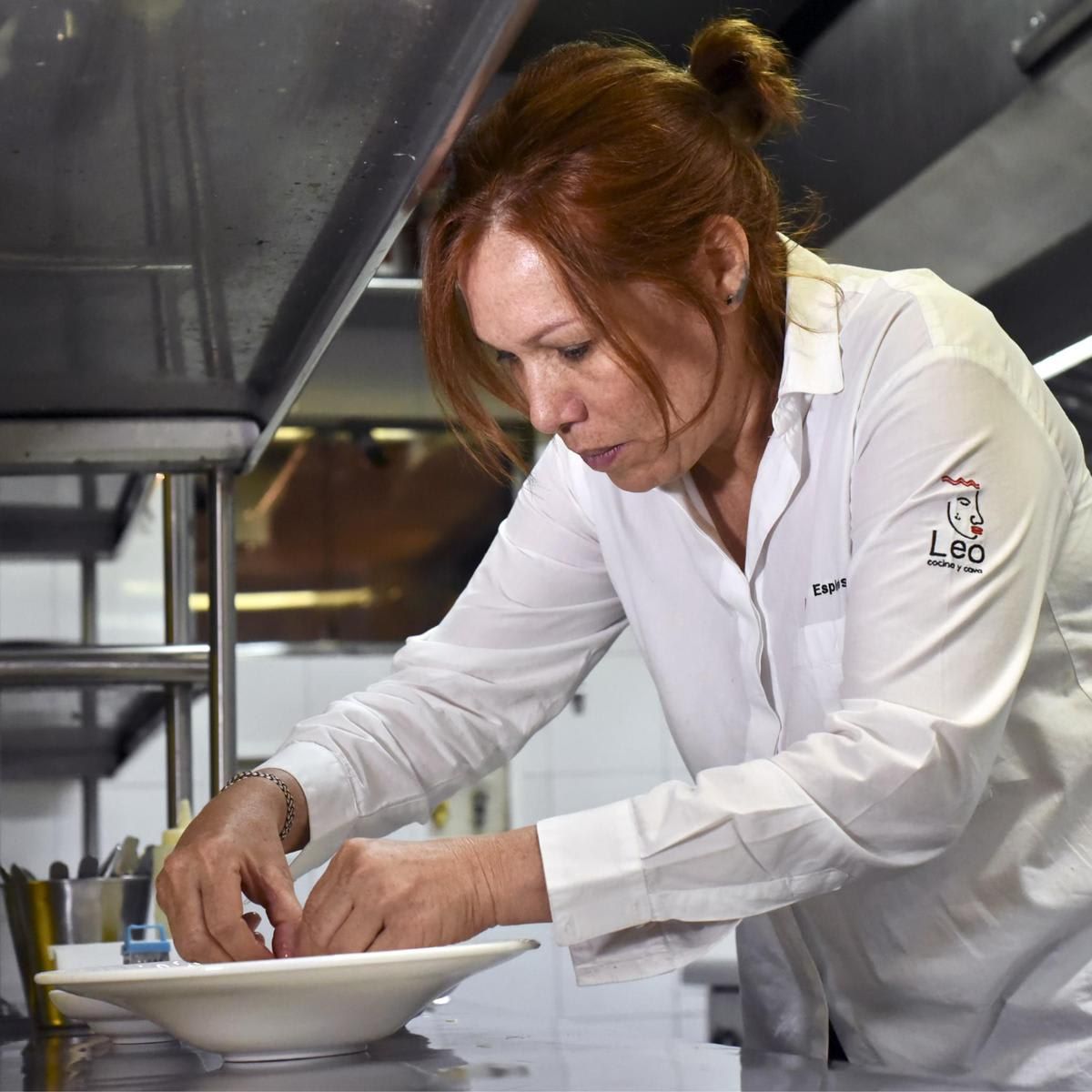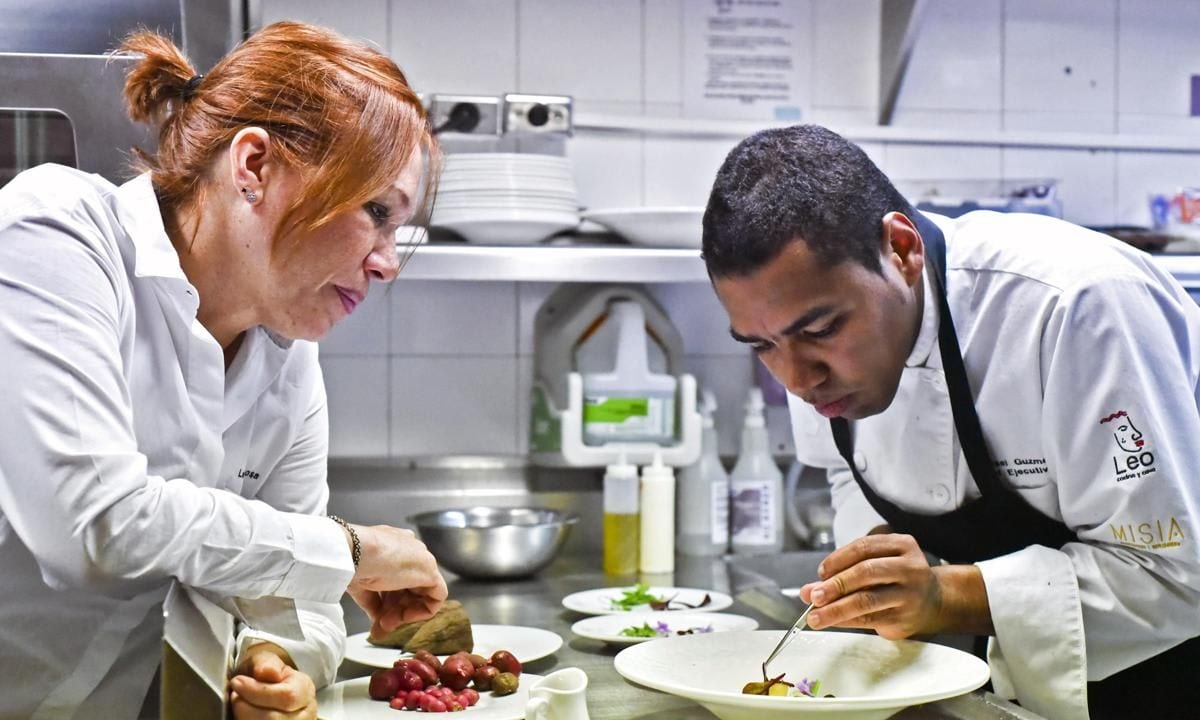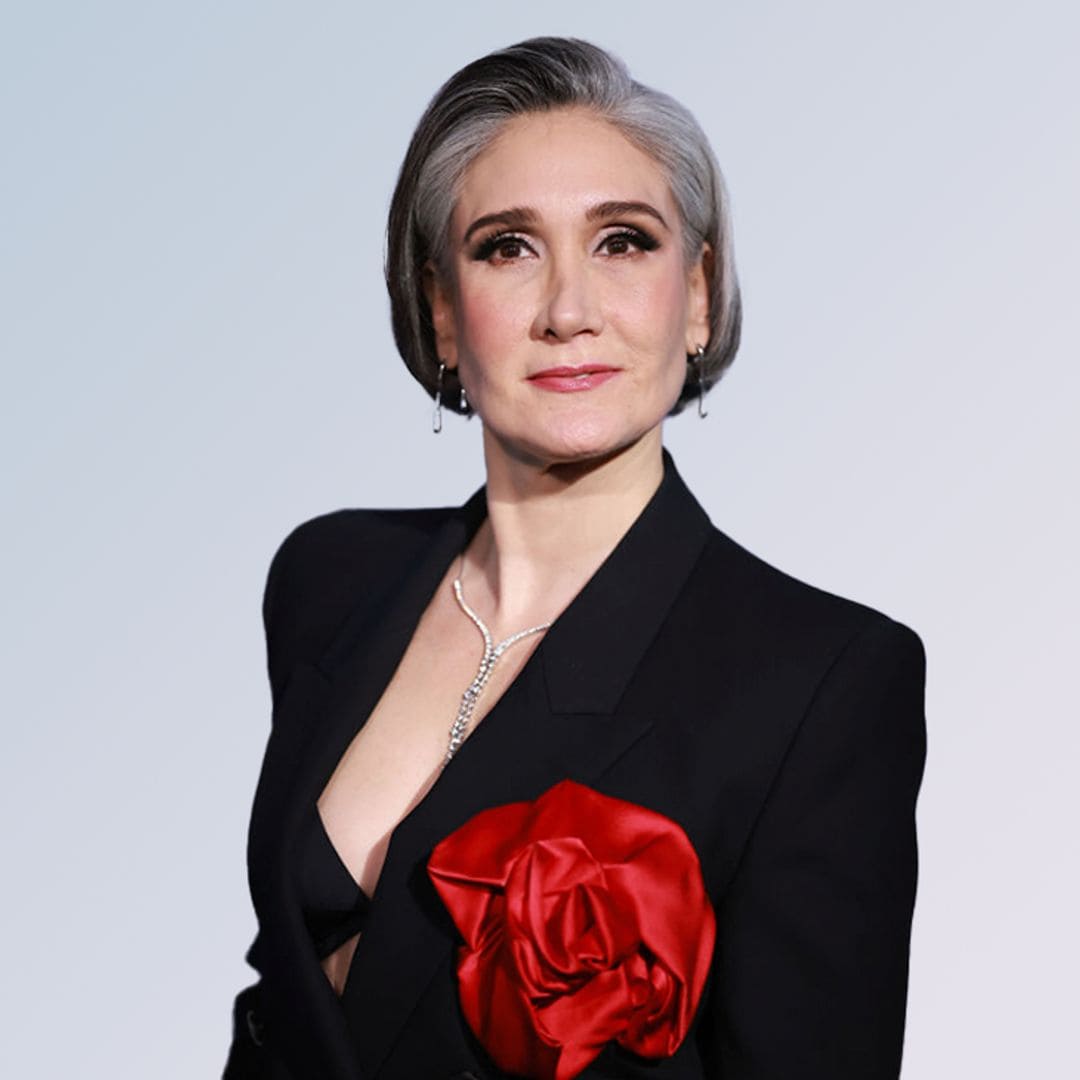One of the best female chefs in the world is Latina! Leonor Espinosa, the owner of Leo restaurant in Bogotá, Colombia, also ranked 46th out of the 50 best restaurants globally, is among the most important personalities in her country and Latin America.
Espinosa is known for her constant promotion of local Colombian products and flavors and for celebrating the country’s biodiversity. In her kitchen, Leonor creates mouthwatering appetizers such as mussels with coconut and Galerazamba salt, dried prawns with snails and ants, and main dishes that include duck jelly served with rare Amazon jungle’s coquindo oil and Salar de Manaure salt.
Although Leonor never studied to become a professional chef, her over 15 years of experience at the forefront of the gastronomic industry gave her the necessary tools to become the best while innovating and catering to the most demanding palates.
After finishing her studies in Economics and Fine Arts, Leonor taught herself to cook. Knowing that her talent was undeniable, she opened a restaurant in 2007. Inspired by the concept of the “biome cycle,” Espinosa creates dishes with species and ingredients that are constantly overlooked. “That’s when I understood that cooking was an interdisciplinary profession,” she explained. “I’d worked for several agencies and from one day to the next I did a 180 turn because I didn’t want to be part of the corporate world anymore. A lot of things converged to show me that the true path to artistic expression was cuisine. I returned to Cartagena’s fine arts school, which I’d attended more than two decades earlier, and realised I could be an artist without being a ‘museum artist’, and that art could transcend beyond the visual.”
“My most powerful food memory is at a farm in La Mojana, Sucre… Friends and family were gathered around an enormous table covered in banana leaves that in turn were laden with tasty dishes such as hare, smoked guartinajas [a lowland rodent] stewed in coconut milk, sancochos [soups and stews], roasted meats, rice dishes, mote cheese and yam soup, steamed fresh corn rolls, and fresh coastal cheese among others,” Espinosa wrote in her 2018 book “Lo Que Cuenta El Caldero” (Tales From a Cooking Pot).
“I spent a large part of my childhood in rural regions dedicated to raising cattle and farming, and the flavours and aromas of log-burning fires are etched on my mind,” the chef added.
Espinosa wants her legacy to continue throughout generations; therefore, alongside her daughter Laura Hernández Espinosa, she created a non-profit organization to support indigenous communities. With Funleo, the mother-daughter duo uses the influences to inspire and protect ingredients and ancestral techniques.
Thanks to their big heart and reasonable cause, Espinosa received the Basque Culinary World Prize for “recovering and promoting the culinary traditions of indigenous communities.”
,type=downsize)





